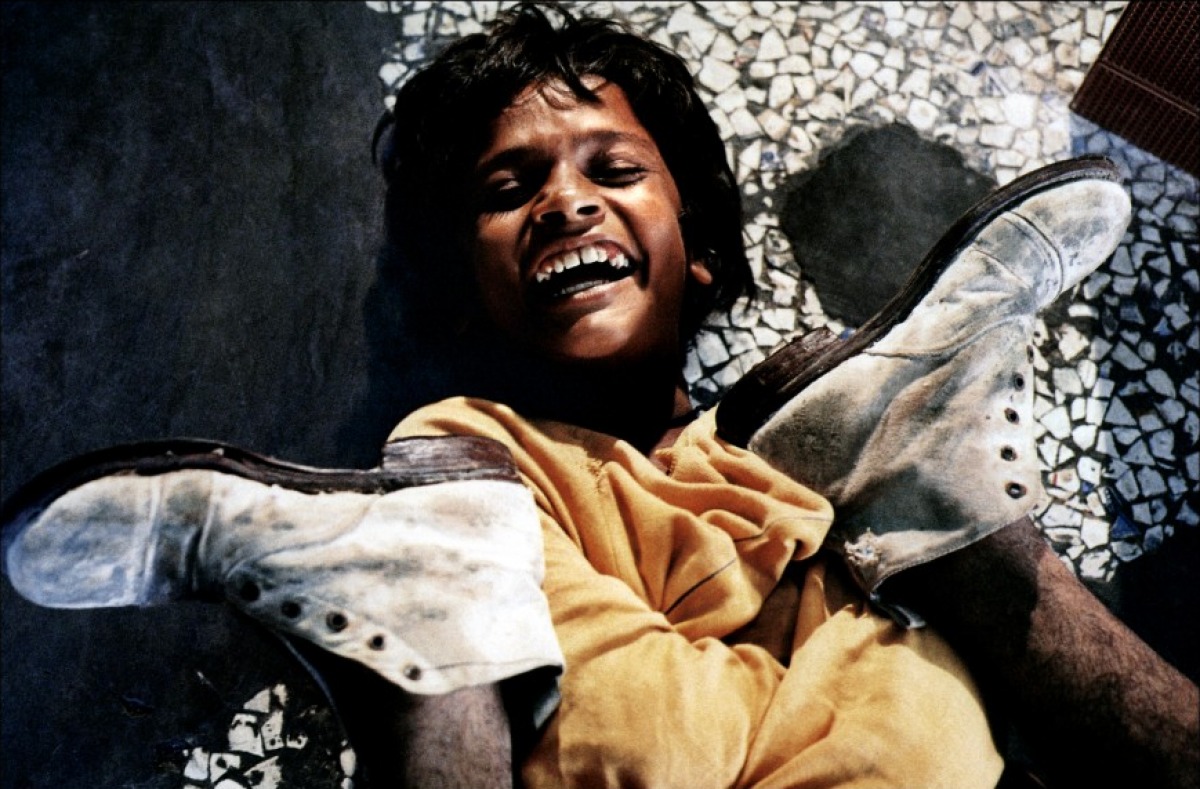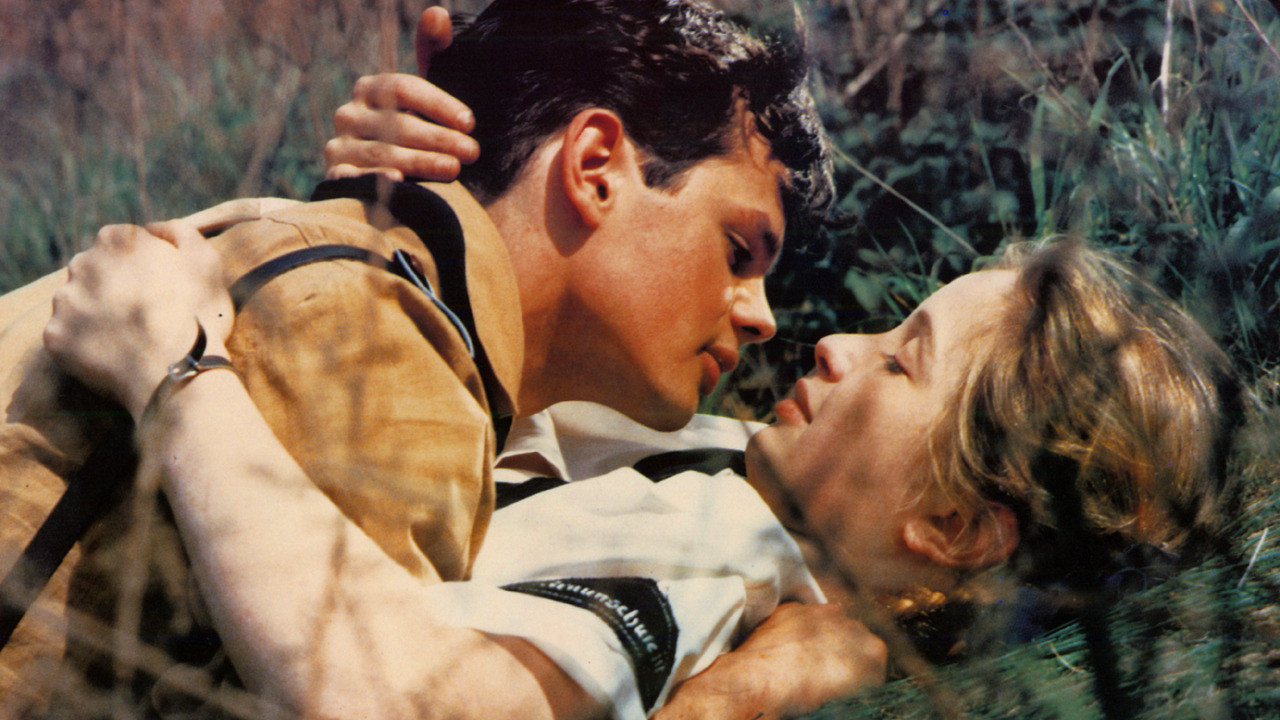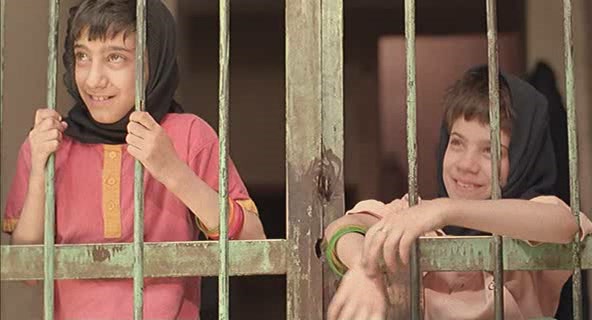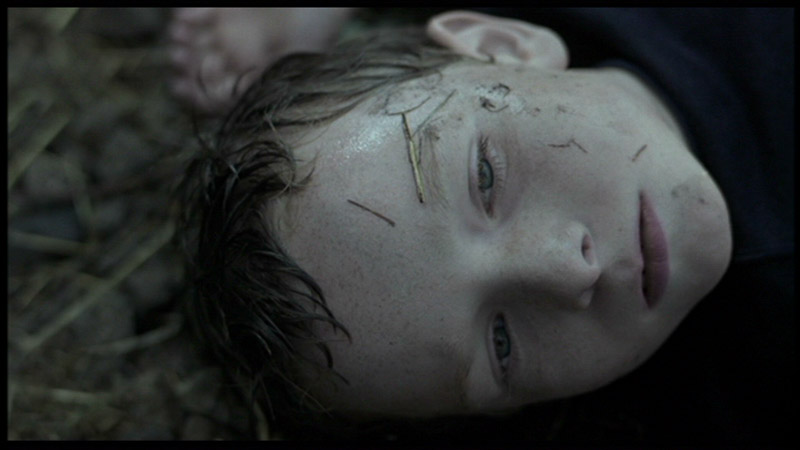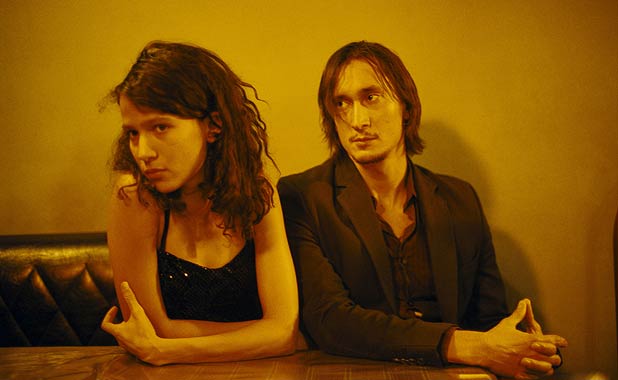9. Salaam Bombay! (Mira Nair, 1988)
There’s a background story to this film that is particularly interesting: the creators gathered children from Bombay and interviewed them about their lives, experiences, and the places they lived. These children weren’t taught how to act, but how to behave naturally in front of a camera. The film chronicles their day-to-day life thus it needed to be as real as possible.
Mira Nair directed it with the help of long-time collaborative screenwriter, Sooni Taraporevala, whom she met at Harvard. Not a single scene in this film was filmed in a studio or on movie set; Nair shot many scenes with hidden cameras, so the audience can hear the unrehearsed comments of spectators in specific parts. Nair captures and transports reality to a whole new level, as well as Hindi filmmaking, which provides comfort that the streets are safer than anywhere else and there might be some hope in them.
10. An Angel at My Table (Jane Campion, 1990)
In this New Zealand-Australian-British production, directed by the first female filmmaker to historically receive the Palme d’Or, the audience discovers a dramatized adaptation of author Janet Frame’s three autobiographies.
The film begins with Frame (Alexia Keogh and Karen Fergusson) as a child, living in a poor New Zealand home, being endlessly mocked at school for her huge, curly red hair and quirky behavior. When Frame (Kerry Fox) is an adult, the death of close family members, as well as large number of embarrassments and other misfortunes, lead her to a madhouse where she’s misdiagnosed as a schizophrenic.
Frame is subjected to more than 200 electroshock treatments, albeit nothing is really wrong with her (besides being terribly shy and sad). Engrossing from beginning to end, the film looks and sounds like fiction when so many awful things happens to such a person. Campion effortlessly presents storytelling in its simplest form, which is genuine and fluid throughout the three sections.
11. Europa Europa (Agnieszka Holland, 1990)
Best known for her political contributions to Polish cinema, Holland is one of Poland’s most eminent filmmakers. Holland’s Europa Europa is based on the 1989 autobiography of Solomon Perel and chronicles the true story of a German Jewish boy who escapes the Holocaust by masquerading as an elite “Aryan.”
Starring Marco Hofschneider as Perel (who appears as himself in the finale), the character defies logic and chance in favor of survival. Thus, Perel meets an identity crisis: by trying to appear an ethnic German, he has to hide certain Jewish traits. Hence, Holland turns this character—that could easily, like so many others World War II films, make the audience pity the main character—into a conflicted individual who constantly shifts identities. Eurpoa Europa keeps the spectator on his feet—longing for his victories—rendering the film a heartwarming and rare war tale.
12. The Apple (Samira Makhmalbaf, 1998)
The film directorial debut by Samira Makhmalbaf (considered to be one of the most influential directors as part of the Iranian New Wave) is based on a true story and features the people who were directly involved in it. For eleven years, two twin sisters are locked up by their parents, an unemployed man and a blind woman, until their neighbors call social workers to investigate the situation. Simultaneously, the Apple portrays an undeniably feminist message and focuses on discrimination against women in Iranian culture.
The title of the film stems from the director’s realization that the apple is the twins’ favorite fruit and, to her, a symbol of life. Makhmalbaf melts documentary with drama (docu-drama), evading their independent meanings—which is controversial in her filmmaking and storytelling choices—and investigates Iranian ethics, as well as premeditates parts of the script the “actors” were most likely unaware.
13. Xiu Xiu: The Sent Down Girl (Joan Chen, 1998)
The directional debut of Chen is set in the 1970s People’s Republic of China, during the Cultural Revolution’s Down to the Countryside Movement. Xiu Xiu (Xiaolu Li), a 15-year-old girl living in the city of Chengdu, moves out to study horses in the countryside. She is told that she will return after six months, which she quickly discovers isn’t true. While struggling against corrupt government officials who manipulate and abuse her, she befriends a eunuch horseman, Lopsong (Lao Jin).
The central theme is exile of a frightened homesick girl who wants her life back; she is the antithesis of the common heroine. The film, unfortunately, was not accepted in China, and the director was not welcome to return. It’s haunting how Xiu Xiu supports an extraordinary truth inside fiction. The main friendship in the film— based on silence and pain—is outstanding; this type of relationship seems nightmarish and frightening, but is represented beautifully by Chen and her actors.
14. Ratcatcher (Lynne Ramsay, 1999)
Ratcatcher is the debut feature film from Scottish director Lynne Ramsay. Set in a Glasgow tenement block in the 1970s, against a backdrop of garbage accumulating during a “dustmen’s” strike. The film follows a young boy, James (William Eadle), through a series of more or less connected episodes.
At the portrayed time— the poorest housing conditions in Western Europe—there is not any running hot water, bathing facilities, or indoor plumbing. There’s a new city development program that promises to re-house the tenants in new modern estates. The main character, James, is a 12-year-old boy forced to live in these conditions, facing imminent death by contamination, toying with rats and dealing with his heavy-drinking father.
The narrative is beautifully connected, and the truly fascinating part is how absurdly normal all the dirtiness, extreme poverty, mental issues, abuse, etc., looks in a film that follows the life of a mere child.
15. The Taste of Others (Agnès Jaoui, 2000)
Written by Jaoui and her former partner Jean-Pierre Bacri, this French film is about a busy industrialist named Castella (Bacri), a married man who falls in love with an actress in a play. His wife, an interior decorator, is the dictator of his life. She is cold, and unaffectionate, and materialistic. Clara (Anne Alvaro), the actress, doesn’t share Castella’s feelings because he’s the complete opposite of her.
Nevertheless, Castella falls for the idea of Clara, ultimately forcing him to finally think for himself and develop his own feelings. There’s another interesting relationship in the film, a barmaid portrayed by Jaoui, whose character falls for Castella’s bodyguard. A few other obstacles exist between them, including the fact that the barmaid sells drugs. Jaoi, through her direction, characterizes human relationships by requiring each character to intelligently argue and subtly judge each other about tastes and opposites.
16. Lost in Translation (Sofia Coppola, 2003)
Lost in Translation, a minimalist comedy-drama, is responsible for Sofia Coppola’s win for Best Original Screenplay, as well as her three other Academy Awards nominations, including Best Director—Coppola, coincidentally, is the first American woman to be nominated for this award).
Set in Tokyo, Lost in Translation tells the tale of an aging actor named Bob Harris (Bill Murray), who travels to Japan to film an advertisement. While there, Bob meets Charlotte (Scarlett Johansson), the lonely wife of a celebrity photographer on assignment. The film struggles with two different situations that slowly lead to a friendship.
The controlled performance of Murray makes it one of his best; Johansson’ also serves as a perfect companion in those late, gloomy nights. The brilliant use of chiaroscuro, and the breathtaking shots and wonderful cinematography of the city, the film follows the duo’s experiences and leaves the audience empathizing with the characters’ bittersweet loneliness.
17. 35 Shots of Rum (Claire Denis, 2008)
Denis is recognized for her process of “shooting fast, editing slowly” and her high regard for collaborations on all of her body of work. Her dedication to editing usually results in switching the scenes’ order in the original script and rearranging details. She’s also mentioned that she does not hold auditions for her films because she primarily hires many of the same actors.
35 Shots of Rum is described by some as “an intimate family study.” The film tells the story of widower Lionel, a RER driver in Paris, and his isolated life with his daughter Josephine, with whom he shares a very special bond. The two dwell in an apartment building in the suburbs in which another “couple” also live; the film drives the audience into questioning the relationship and interactions between the four of them. Claire Denis doesn’t treat this film as a lesson because the film’s diegesis is a world to which everyone can relate. It is a treat for the audience to observe these characters without the necessity of a conventional plot.
